Get Access to our Latest Ideas & Research on Heart Intelligence
Learn practical solutions for expanding heart connections, accelerating personal growth and transforming stress into greater energy, better health and a more fulfilling life.
Learn practical solutions for expanding heart connections, accelerating personal growth and transforming stress into greater energy, better health and a more fulfilling life.
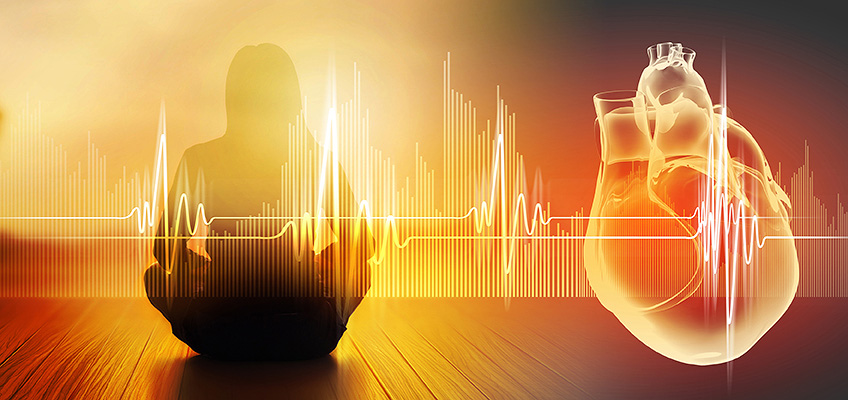
The Heart Lock-In® Technique, one of HeartMath’s earliest tools, has helped individuals and groups increase heart-rhythm coherence for many years. Now a study* has validated the tool’s effect on synchronization between the heart and geomagnetic activity, which is significant because this synchronization is associated with better health.
Continue reading
Researchers studying the effects of stress on employees undertook a new approach in their research to improve upon what they said may be outdated and obsolete tools for evaluating workplace stress. As a result, they said, some of their findings were "astonishing."
The researchers, Adrian Low of the Hong Kong Association of Psychology, and study advisor HeartMath Institute Director of Research Dr. Rollin McCraty, used HeartMath’s emWave® Pro Plus as a quantitative assessment tool for the study. (Click this link to read the entire study: Emerging Dynamics of Workplace Stress of Employees in a Large Organization in Hong Kong.)
Continue reading
Editor’s note – “Coherence is the state when the heart, mind and emotions are in energetic alignment and cooperation. It is a state that builds resiliency – personal energy is accumulated, not wasted, – leaving more energy to manifest intentions and harmonious outcomes.”
Know someone about to begin or continue college this fall? Naturally, you’ll want to offer encouragement and helpful advice for coping and succeeding in what is sure to be one of the more stressful ventures of his or her life. Think coherence. Even better, think quick coherence:
A newly published study assessing the efficacy of HeartMath’s Quick Coherence Technique® (QCT) found significant improvements in a group of students’ heart-coherence levels, as measured by heart rate variability (HRV). Study participants were undergraduates at the Universiti Putra Maylasia, in Pahang, Malaysia.
Continue reading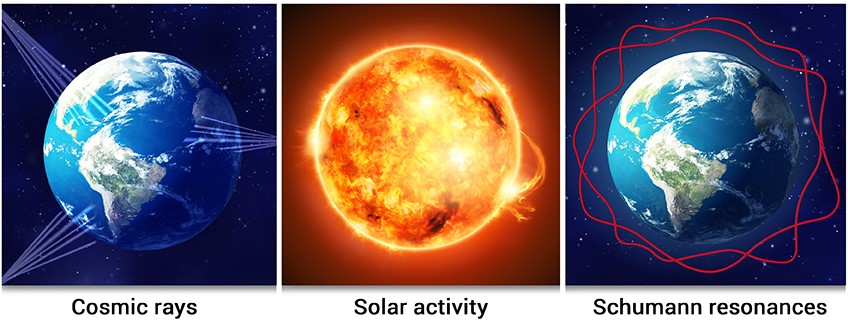
Did you know geomagnetic and solar activity can affect your autonomic nervous system (ANS), which controls your breathing, heartbeat and digestive processes? It’s true: A recently published long-term study whose researchers included HeartMath Institute’s Rollin McCraty and Mike Atkinson, reached that conclusion.
"These findings," the study states, "support the hypothesis that these energetic environmental factors act as energy sources that outplay in different ways depending on an individual’s health status and maturity level and capacity of self-regulation."
Continue reading
Being out of sorts, or off our game because of Illness or injury, anger or anxiety or when we become stressed out and overwhelmed can cause deterioration in our personal coherence levels. Likewise, dysfunction within a group – large or small – because of animosity, jealousy, judgment or other negative conditions can signal a weakening of social coherence and, ultimately, lead to a group’s success or failure.
"Social coherence," writes HeartMath Institute Director of Research Rollin McCraty, "relates to the harmonious alignment between couples or pairs, family units, small groups, or larger organizations in which a network of relationships exists among individuals who share common interests and objectives." McCraty, one of today’s foremost researchers of coherence and heart rate variability, was writing for the October issue of the journal, Frontiers in Public Health.
Continue reading
"All biological systems on Earth are exposed to an external and internal environment of fluctuating invisible magnetic fields of a wide range of frequencies. These fields can affect virtually every cell and circuit to a greater or lesser degree." – Synchronization of Human Autonomic Nervous System Rhythms with Geomagnetic Activity in Human Subjects, a newly published study in the International Journal of Environmental Research and Public Health.
A research team that conducted the study cited above and published this month added further evidence to the scientific community’s understanding of how human autonomic nervous systems respond to environment influences. In this study, those influences resulted from, among other factors, changes in solar and geomagnetic activity, cosmic rays and the frequencies known as the Schumann resonances.
Continue reading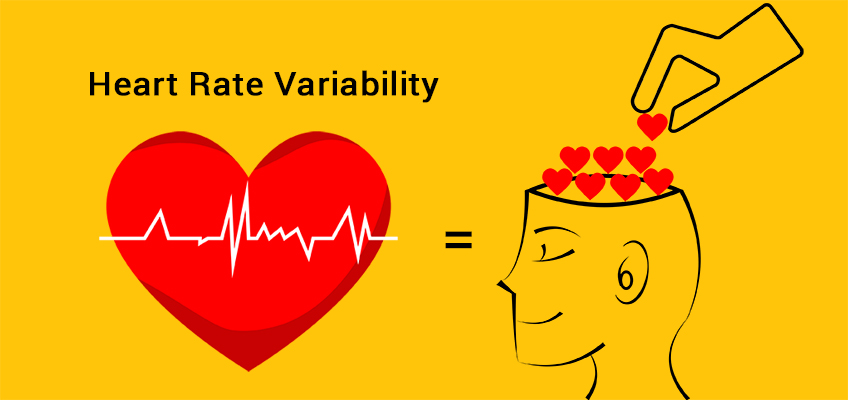
Would it surprise you to know that a recent study proposes that wisdom, or good judgment is not exclusively a function of your brain, but also of your heart?
More precisely, “wise reasoning,” the study’s authors say, is closely dependent upon what scientists refer to as heart rate variability as well as an ego-decentered mind. Both are key determinants of wiser, less-biased judgment.
Continue reading
Your emotions – Things happen, you engage in conversation, attempt to do something, go someplace. Feelings arise and you often feel them in your body. Sound about right? Pretty simple.
Except it turns out that emotions, and where and how they originate, are not simple at all. For nearly all of human history, emotions have been the subject of much debate among scientists, HeartMath Institute (HMI) Research Director Dr. Rollin McCraty writes in his scientific monograph, Heart-Brain Neurodynamics: The Making of Emotions.
Continue reading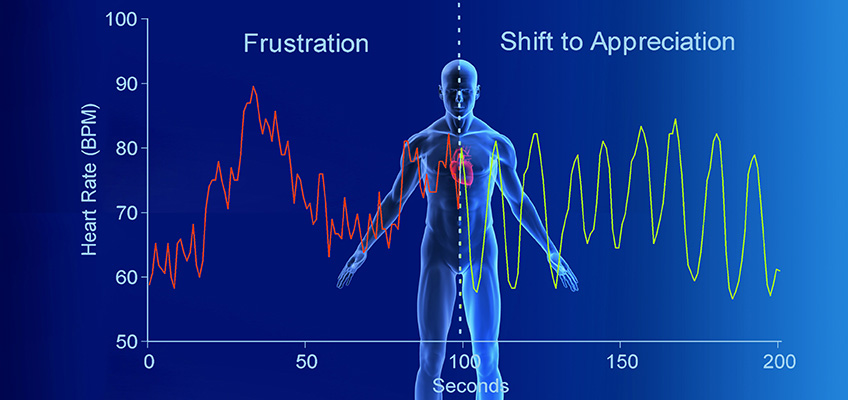
It has only been five decades since scientists began to alter their long-held belief that the human body’s cells, tissues and organs, particularly the heart, strive to maintain a constant static or steady state.
Continue reading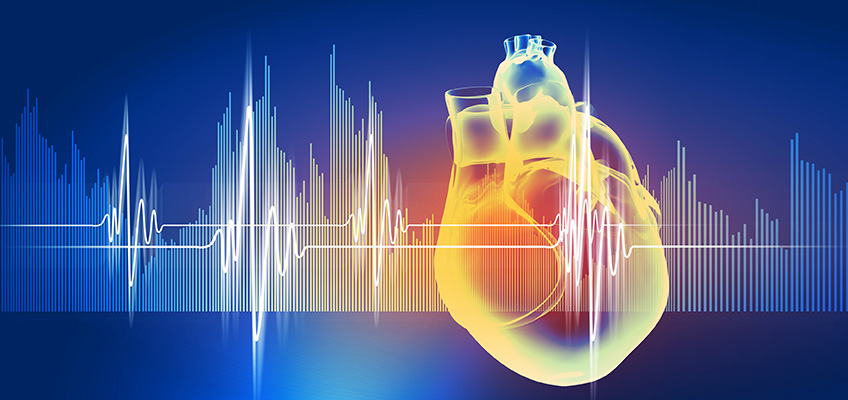
Heart rate variability (HRV), which is at the core of research the HeartMath Institute conducts, is a measure of the naturally occurring beat-to-beat changes in heart rate/heart rhythms. It serves as a critical method for gauging human health and resiliency.
Continue reading